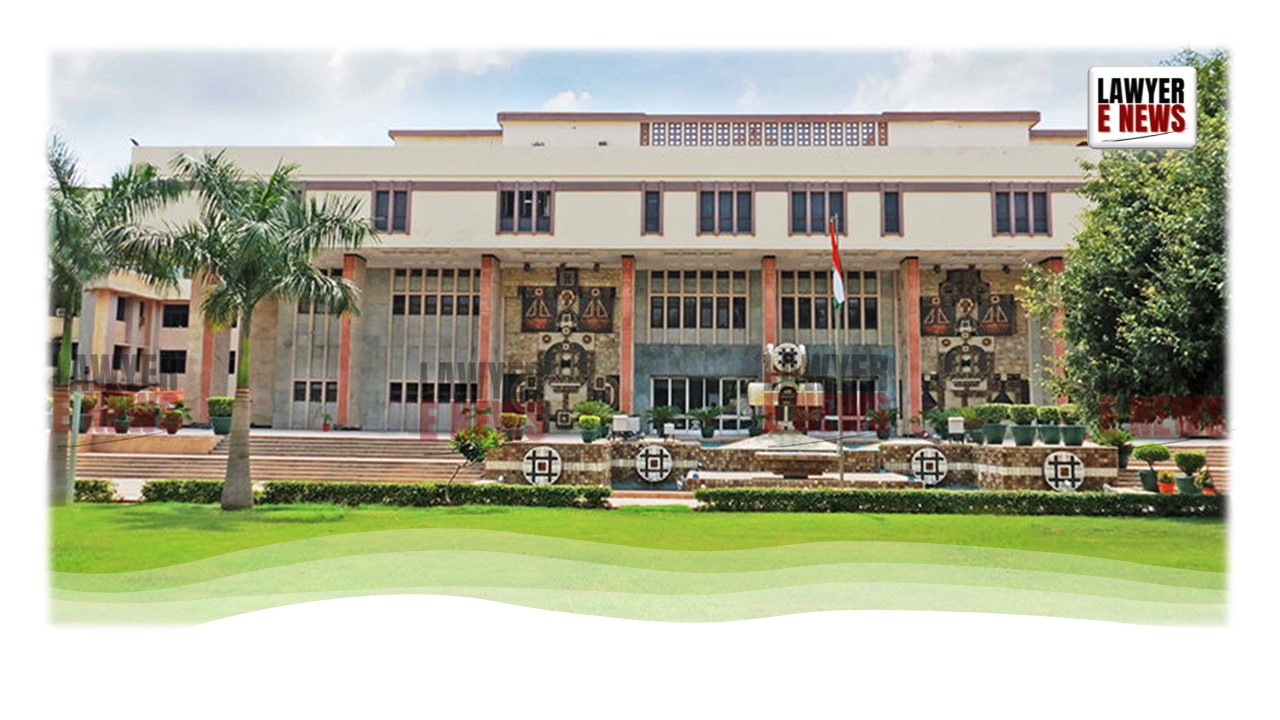-
by Admin
17 February 2026 2:34 PM



In a significant judgment delivered on April 2, 2025, the Division Bench of the Delhi High Court comprising Chief Justice Manmohan and Justice Manmeet Pritam Singh Arora set aside the two-year suspension imposed on
Insolvency Professional Raj Kumar Yadav by the Disciplinary Committee (DC) of the Insolvency and Bankruptcy Board of India (IBBI). The Court held that while disciplinary actions are necessary for the orderly functioning of the insolvency framework, punishments must be proportionate and just.
The Bench remarked, “Punishment imposed on a professional cannot be so severe that it amounts to civil death.”
Raj Kumar Yadav, an Insolvency Resolution Professional (IRP), was suspended by the DC for two years based on allegations that he had failed to verify certain financial claims and committed other procedural lapses during the Corporate Insolvency Resolution Process (CIRP) of Divine Alloys & Power Company Private Limited. The Disciplinary Committee relied on an inspection report that stated that claims totaling Rs. 166.67 crores were accepted by him in violation of the Insolvency and Bankruptcy Code, 2016 (IBC) and the CIRP Regulations.
Aggrieved by the decision, Yadav approached the Delhi High Court under Article 226, contending that the DC had acted mechanically without appreciating the material evidence, especially the Auditor’s Report and the CoC’s endorsement of his actions.
The core issue before the Court was whether the suspension order passed by the DC was justified and proportionate in view of the available evidence, including the findings of the Auditor and the actual resolutions adopted by the Committee of Creditors (CoC).
The Court, after scrutinizing the material on record, observed: “It is clear that the figure of Rs.166.67 crores found mention only in the Inspection Report and is not substantiated by the Auditor’s Report which pegged the amount at Rs. 36 crores.”
The Bench criticized the DC for ignoring the Auditor’s Report without adequate reasoning: “The DC could not have brushed aside the findings of the Auditor as an afterthought without conducting an independent verification.”
Further, the Court took judicial notice of the fact that the CoC, comprising sophisticated financial creditors, had duly approved all actions taken by the IRP, including acceptance of claims and invocation of Bank Guarantees.
“The commercial wisdom of the CoC, which is paramount under the IBC framework, was disregarded by the DC without proper justification,” the Court noted.
On the nature of punishment, the Court made a strong observation: “While regulatory bodies are empowered to discipline professionals, the penalties must not be such that they irreversibly damage the professional career of individuals.”
The Delhi High Court emphatically ruled that: “The Disciplinary Committee has erred in adopting the figure of Rs.166.67 crores without reconciling it with the Auditor’s Report. This has resulted in a flawed finding of a substantial dereliction of duty.”
The Bench held that the suspension was disproportionate and lacked due consideration of crucial facts. Accordingly, the Court reduced the penalty, limiting the suspension period to the time already undergone by the petitioner.
The Court clarified: “The object of punishment is to discipline and not to destroy.”
Additionally, the Court underlined that a balance must be maintained between ensuring accountability of insolvency professionals and preserving the effective functioning of the insolvency system, which hinges on the availability of qualified professionals.
The Delhi High Court’s judgment is a significant reiteration of the principle of proportionality in regulatory jurisprudence concerning insolvency professionals. It reinforces that procedural errors, unless accompanied by mala fide intent or gross negligence causing substantial prejudice, should not warrant punitive measures leading to “civil death.”
The Bench summed it up aptly: “The punishment imposed by the DC is disproportionate and shocks the conscience of this Court.”
Date of Decision: 02 April 2025
